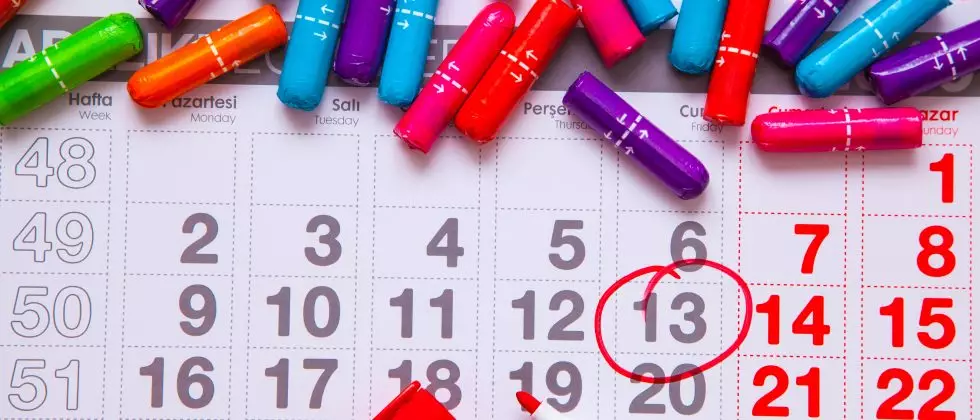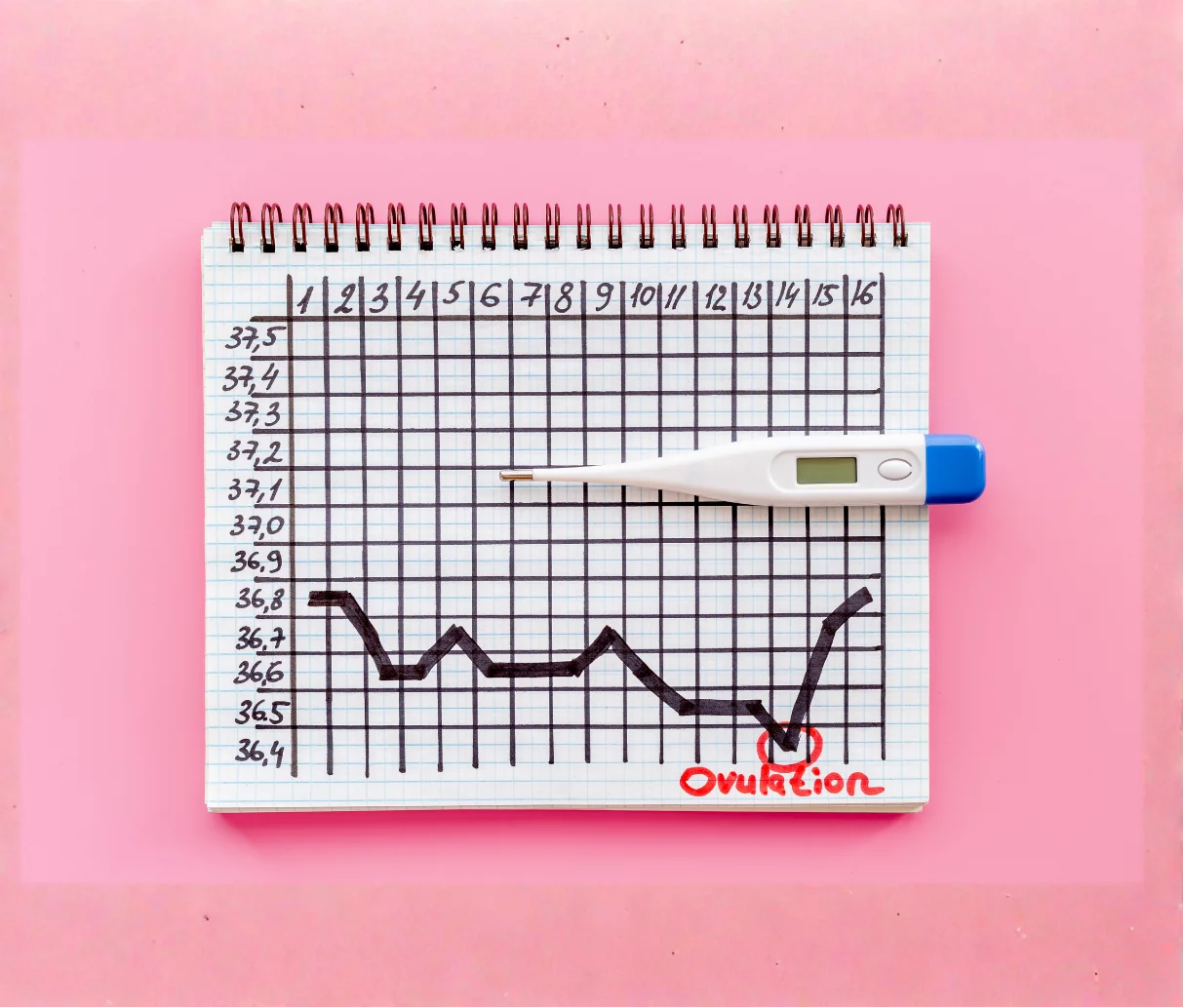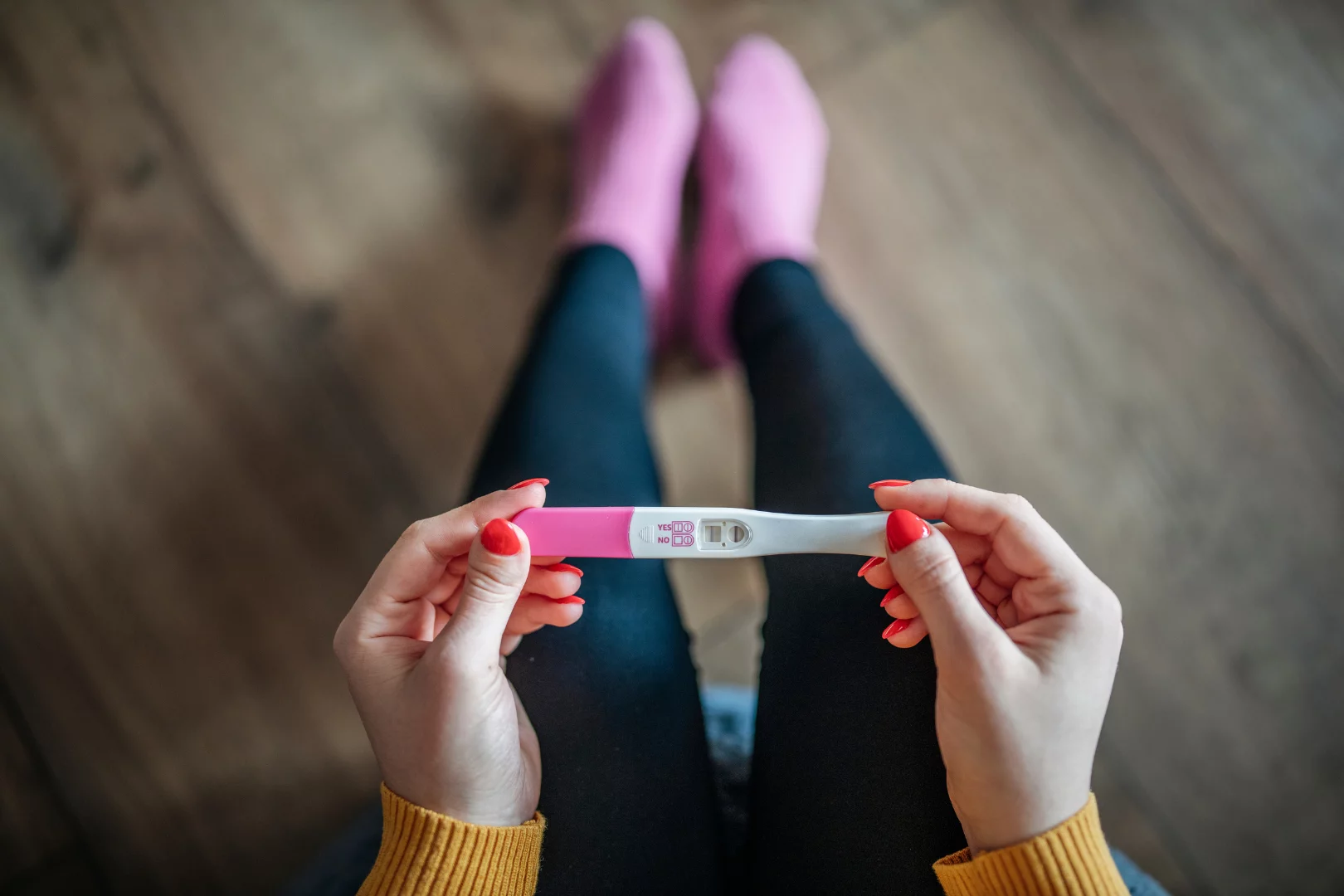Ovulation date – Increasing the chances of getting pregnant
29.9.2021 · 3 min reading
Are you trying to conceive? I'm sure you don't need advice on how to do it, but you may need help with timing to make sure your attempts are successful. There are countless tips on the Internet for guaranteed ways of getting pregnant, but today we will focus on those that are medically based, and we will teach you the biggest trick - recognizing your fertile days and ovulation.
Ovulation – the best day to conceive
The menstrual cycle consists of several phases that every woman experiences and feels differently – the hormones oestrogen and progesterone play a major role in it; these hormones cause the egg to mature in the ovaries and changes in the fallopian tubes, uterine lining and vagina. While one woman may feel the changes in her cycle very strongly, to another woman all the days of her cycle may be exactly the same. The perception of cyclicality and the changes associated with it is therefore very individual. However, women should train their “sixth sense” for one part of their cycle, especially if they want to get pregnant. This part of the cycle is ovulation, which is absolutely key for getting pregnant. So although it is generally true that ovulation, when you have the highest chance of getting pregnant, occurs around the 14th day before menstruation, in order to truly recognize the “ovulation D day”, it is best to learn to listen to your body’s signals and get an ovulation test, which is available today in most drugstores and pharmacies. You can also detect impending ovulation by regularly measuring your basal body temperature, which will help you orient yourself in your cycle.
Fertile window versus ovulation. What’s the difference?
First off, fertile days are not the same thing as ovulation. While the other phases of the cycle last several days (menstruation, proliferation phase and secretory phase), ovulation is the shortest moment of the cycle – just one day, when the egg is released and caught by the fallopian tube. Two things may occur in the fallopian tube: sperm from the fertile days (about three days before ovulation) is either “waiting” here, or there has not yet been sexual intercourse and the egg is waiting to be fertilised, but it must not wait longer than 24 hours. In short, there are about five days when you can get pregnant, the highest chance being on the day of ovulation.
Your body sends important signals, learn to notice them
Knowing when you ovulate can help you plan sex for the right time and increase your chances of pregnancy. If you start to observe your cycle carefully, you may notice some of the symptoms many women experience on their fertile days and on the day of ovulation: particularly increased moisture in the vagina, vaginal mucus, increased desire for sex, sharp or dull lower abdominal pain, and sometimes spotting or light bleeding. If you’re worried you can’t recognize these signals, then you should buy an ovulation test or measure your basal body temperature regularly.
Calculate your chances during your fertile days and ovulation
Having sex as close to ovulation as possible increases the chance of pregnancy, and the following is generally true:
- If a woman has sex six or more days before ovulation, her chances of getting pregnant are practically zero.
- If she has sex five days before ovulation, her chance of getting pregnant is about 10 percent.
- If she has sex on the day of ovulation or two days before, her chance of getting pregnant is around 30 percent.
Are you on the pill? Then your body follows different rules
However, things are different in women who take hormonal contraception – in this case no ovulation occurs, the egg doesn’t ripen and pregnancy cannot occur. When they stop taking the pill, it may take some while for them to experience “true” ovulation. If you are having trouble conceiving after you stopped taking the pill, there is no need to panic; it will take your body a while to get all the hormones in balance and for you to have a real cycle, including real ovulation.
Support your ovulation and increase your chances of getting pregnant
It should be noted that the numbers above are approximate, and it naturally also depends on a woman’s age and her health. There are also ways of supporting ovulation – gynaecologists recommend that all women support sufficient blood supply to the pelvic floor through regular exercise or yoga, sufficient vitamins and minerals, detoxification, the absence of alcohol and tobacco products, sufficient rest, stress reduction, and potentially weight loss/weight gain, as the ideal BMI should be around 22-23 points.









